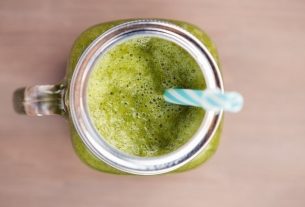The uva-ursi is a medicinal plant, of the species Arctostaphylos grape-bearwidely used to help treat urinary infections, such as cystitis or urethritis, as well as kidney stones or acute diarrhea, as it has antibacterial, anti-inflammatory, antiseptic and diuretic actions.
The normally used parts of uva-ursi, also known as bearberry, buxilo, strawberry tree, bearberry or buxulo, are the leaves, from which medicinal substances are extracted for the preparation of tea, poultices, capsules or tincture. .
uva-ursi can be found in health food stores or compounding pharmacies and, although it has many benefits, it does not replace conventional medical treatment and should be used under medical advice or from a herbalist.

What is it for
uva-ursi is indicated to help in the treatment of:
- Urinary infections, such as cystitis or urethritis;
- Kidney stones;
- Kidney inflammation or pyelitis;
- Enlarged prostate;
- Uterine cramps;
- Abscesses or boils;
- Vaginitis or blenorrhagia;
- Acute diarrhea or dysentery.
These benefits of uva-ursi are due to the presence of arbutin, flavonoids, hydroquinones, tannins and ursolic acid in its composition, with antibacterial, anti-inflammatory, antiseptic and diuretic properties.
Although it has many benefits, uva-ursi should not replace medical treatment with medicines or be used without guidance from a doctor or herbalist.
Does uva-ursi help you lose weight?
uva-ursi does not lose weight, having no effect on the elimination and reduction of body fat.
However, as it has a diuretic action, more water can be eliminated from the body, giving the false sensation of weight loss.
How to use
The uva-ursi leaves can be used to prepare tea, poultices, capsules or tincture, for example.
1. Cha de uva ursi
Uva-ursi tea increases urine elimination, cleans and reduces swelling of the urinary tract, and can be used for cystitis, urethritis, kidney stones or kidney inflammation, for example.
This tea has antimicrobial activity, reducing the proliferation of microorganisms, especially the bacteria Escherichia coli (E. coli) that causes infections in the bladder, urethra and kidneys and, therefore, is a great option for a home remedy for urinary tract infections.
Ingredients
- 2 tablespoons of dried uva-ursi leaves;
- 1 liter of water.
Preparation mode
Boil the water together with the uva-ursi leaves for approximately 15 minutes. Strain and drink warm 2 to 3 cups a day, for a maximum of 5 days, and no more than 5 times a year. See other home remedies for urinary tract infections.
2. Grape-bear capsules
uva-ursi can also be found in the form of capsules, in compounding pharmacies or natural product stores, prepared with the dry extract of this medicinal plant.
Doses may vary according to the amount of dry extract in the capsule composition, with a recommended dose of 1 to 6 g of uva-ursi per day, for a maximum of 7 days.
Therefore, for 500 mg uva-ursi capsules the recommended dose is 1 capsule, up to 3 times a day. As for the 350 mg capsules, the recommended dose is 2 capsules in the morning and 2 capsules in the afternoon.
The use of uva-ursi in capsules should only be done under the guidance of a doctor or a professional with experience in medicinal plants, with individualized doses, according to the condition being treated.
3. Tincture of uva-ursi
The dose of uva-ursi tincture in a 20% concentrated solution is 20 drops, twice a day, and the drops must be diluted in water.
The use of the tincture should only be done under medical advice.
4. Uva ursi poultice
The uva-ursi poultice can be used for skin abscesses or boils, for example.
Ingredients
Preparation mode
Crush the uva-ursi leaves and add a small amount of water. Then apply to the affected area with an abscess or boil.
Possible side effects
uva-ursi can cause side effects when used in quantities greater than those recommended, such as ringing in the ears, nausea, vomiting, irritability, insomnia, feeling short of breath or convulsions.
Furthermore, when used in excess, uva-ursi can cause liver poisoning, due to the hydroquinones present in its composition.
Who shouldn’t use
uva-ursi should not be used by children under 12 years of age, pregnant or breastfeeding women, or by people with stomach problems such as gastritis or ulcers, for example.

Sign up for our newsletter and stay up to date with exclusive news
that can transform your routine!
Warning: Undefined array key "title" in /home/storelat/public_html/wp-content/plugins/link-whisper-premium/templates/frontend/related-posts.php on line 12
Warning: Undefined array key "title_tag" in /home/storelat/public_html/wp-content/plugins/link-whisper-premium/templates/frontend/related-posts.php on line 13



